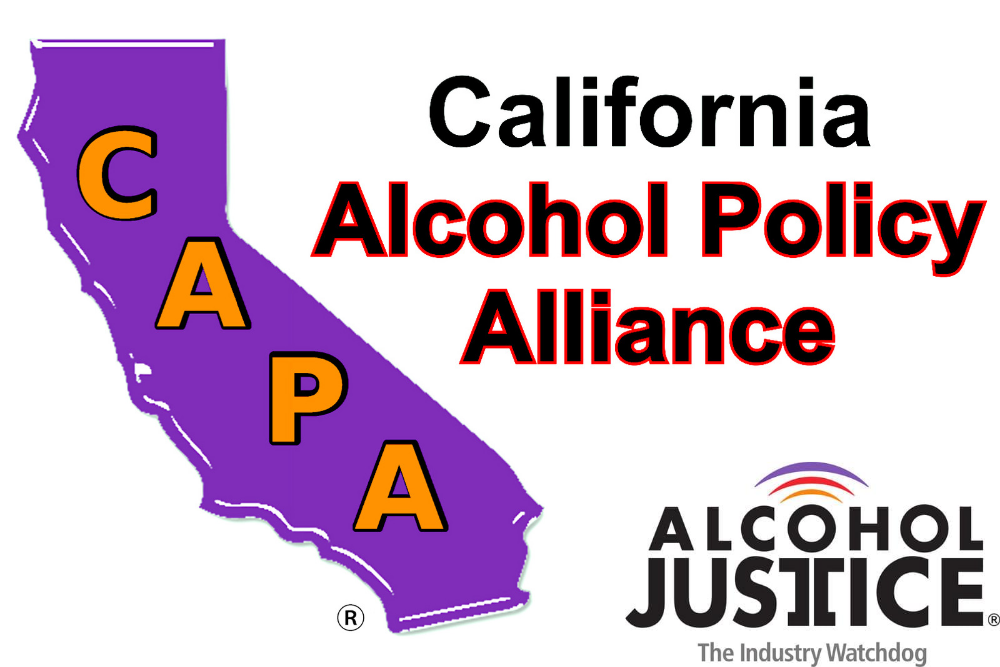Senator Wiener's SB 930 Fails as Lawmakers Choose Public Health & Safety Over Nightlife Profits
SAN RAFAEL, Calif. -- Alcohol Justice and the California Alcohol Policy Alliance (CAPA) expressed deep gratitude today as the California State Assembly voted to stop SB 930. 31 voted NO, 25 voted YES, and 24 didn't vote at all which was another way of making sure Senator Scott Wiener would be handed his 4th failure since 2017 in attempting to establish a so-called "pilot project" to give some California cities the ability to extend last call at bars, restaurants, and clubs.
"This afternoon, Senator Wiener's gut & amend bar bill died so that Californians won't," stated Cruz Avila, Executive Director / CEO of Alcohol Justice. "This is a huge victory for California. The Assembly chose the safety of the state's residents and visitors over profits for alcohol-related businesses. I am proud of their actions and of the coalition that fought to oppose this dangerous bill. We implore current and future legislators to never resurrect this faulty concept again."
After the final tally of the failed bill was reported, former California Highway Patrol Officer, Assemblymember Tom Lackey (R-Palmdale) said…"Thanks to the intense coalition fighting to kill SB 930, we once again saved lives by defeating this hurtful proposal."
Originally, SB 930 would have allowed closing times for on-sale retailers to be extended from 2 a.m. to 4 a.m. as part of a dangerous "pilot project" in 7 cities: San Francisco, Oakland, West Hollywood, Cathedral City, Coachella, Palm Springs and Fresno. But Fresno soon requested to be removed from the bill due to intense opposition and concerns among Fresno city leaders who then passed a formal resolution of opposition. This followed the late-July passage of a resolution of opposition by the Los Angeles City Council and a letter of opposition from the powerful Los Angeles County Democratic Party (LACDP).
"This bill threatened public safety in Los Angeles - MORE than before because it not only put consumers of alcohol in danger but all the innocent bystanders that would have been impacted," stated Los Angeles City Councilmember Paul Koretz. "Current data showed we could expect a SPLASH effect of more DUIs, more drunk driving and more deaths in L.A. because drivers are willing to drive 7-40 miles from their Place of Last Drink (POLD). According to the Berkeley, Safe Transportation Research and Education Center, the greatest number of alcohol-involved fatal and severe injuries in California is already concentrated in Los Angeles County."
"Today they State Assembly took a stand for low-income and people of color–those most impacted by alcohol harms–by defeating SB 930," said Mayra Jimenez, advocacy manager at Alcohol Justice and lead organizer for CAPA. "Community and public health advocates stopped yet another attempt by the nightlife lobby from pouring more alcohol into our streets under the guise of pandemic recovery. Thank you to the members of the legislature that chose to vote for the people of California and chose not be to coerced by unfounded allegations of revenue."
This month, perhaps sensing looming failure, SB 930's authors reduced the pilot project's cities from 7 to 6, then finally to 3, leaving only San Francisco, Palm Springs, and West Hollywood. And the last call changed from 4 a.m. to 3 a.m. during the week, 4 a.m. on weekends and holidays. Critics of the policy change, however, were quick to point out that even one more hour of alcohol sales in three different cities disrupts the protections of a uniform, statewide 2 a.m. last call. Surrounding communities would have experienced increased harms and costs while alcohol sellers in the epicenter of nightlife entertainment districts would have seen marginal economic benefits.
For Alcohol Justice this was the 5th campaign since 2013 to stop alcohol trading hours from being extended into the early morning commute. In 2018, the evidence for increased harms was presented to the legislature in an Alcohol Justice/CAPA report entitled The Late Night Threat, Science, Harms, and Costs of Extending Bar Service Hours. It highlighted the existing data supporting how the acute effects of extending alcohol sales would spread to "Splash Zones" surrounding the pilot project cities.
In 2019, another analysis was done by the respected Oakland-based ARG organization, a project of the Public Health Institute. The "High Cost of the 4 A.M. Bar Bill" was a first of its kind cost-benefit analysis detailing the effects of changing state alcohol policy to allow later last call at bars, restaurants, and clubs. The analysis disturbingly documented the worst concerns of Alcohol Justice and CAPA, that public health and safety would be severely compromised if any so-called "pilot project" became law and allowed a patchwork quilt of last calls across the state.
According to the Center for Disease Control (CDC), California currently suffers more annual alcohol-related harm than any other state: 11,000 alcohol-related deaths, $35 billion in total costs, $18.5 billion in state costs. The CDC also identifies maintaining existing last call times as one of the 10 key policies for reducing the harms from reckless drinking and from alcohol-related motor vehicle deaths.
SB 930:
- Was a poorly conceived and inadequately funded pilot project
- Would have stripped away uniform protections of statewide 2 a.m. last call
- Would have cost the state at least $5 million per year to administer, mitigate the harm, and clean the blood off the highway; and would have cost cities and towns in "Splash Zones" millions more
- Disregarded 40 years of peer-reviewed, public health research on the dangers of extending last call
- Ignored the existing annual catastrophe of alcohol-related harm in California
- Used the false narrative of COVID economic recovery to subsidize and reward late-night alcohol-sellers at government and tax-payer expense
For More Information go to: https://alcoholpolicyalliance.org/ or https://alcoholjustice.org/
Original source can be found here.

